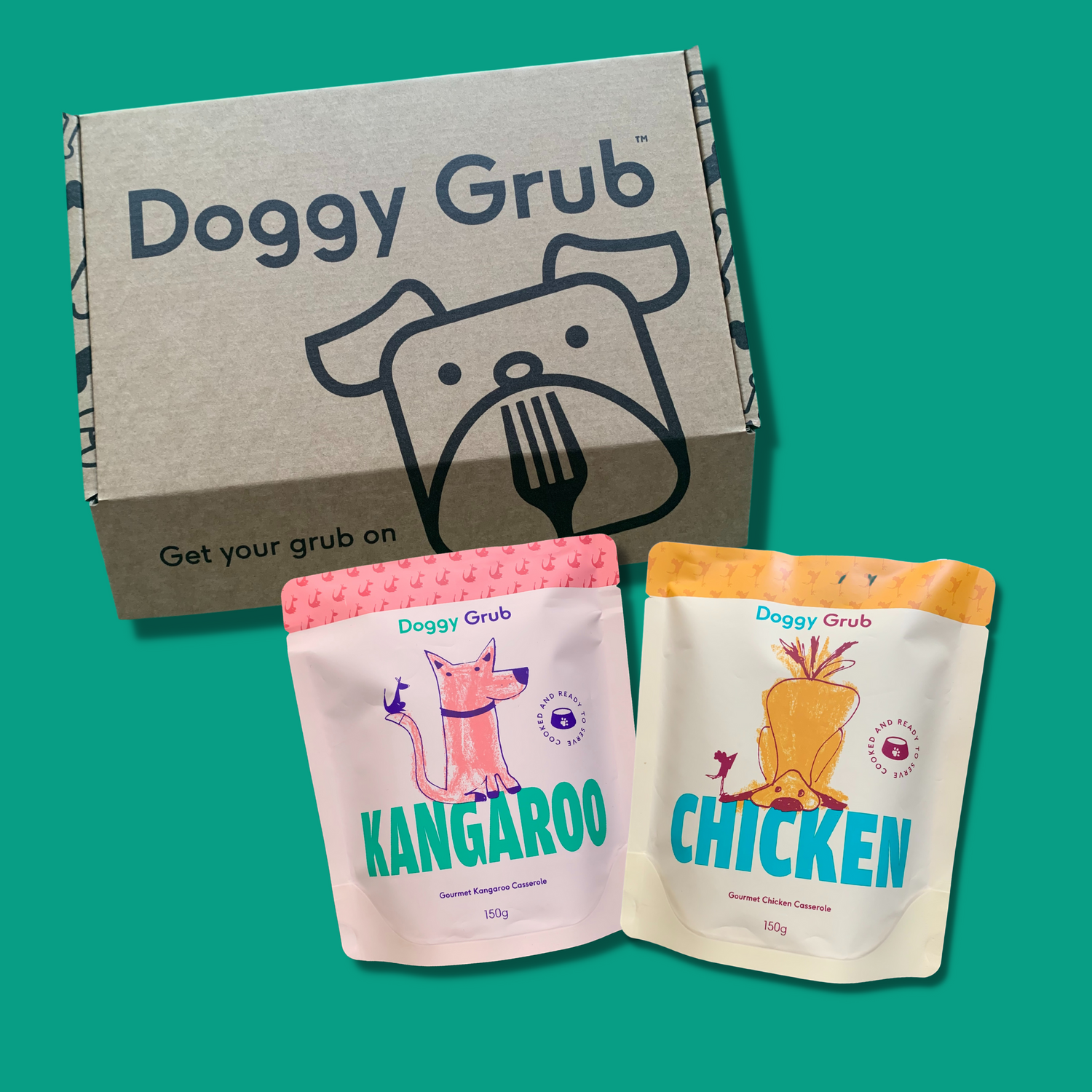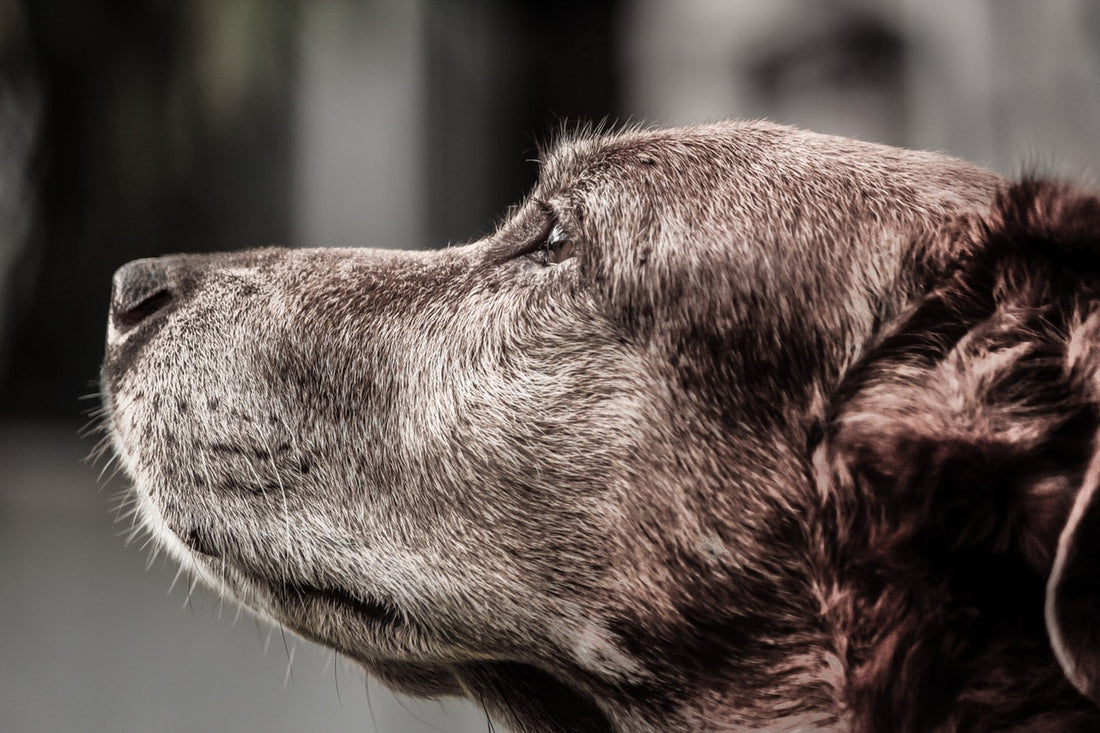You suspect your dog is old when they start greying around the muzzle, their sleeping increases and appetite reduces.
But while your furry friend’s playful demeanour may now be a distant memory, it’s time to accept your dog is growing old and adapt to their senior years.
How? By tweaking your dog’s routine, like diet, play and vet visits.
Read on as we dig up a few ideas…
DIET
Examine your dog’s diet, adjust their daily calorie intake and ensure that all nutrient needs are met. A healthy diet will combat obesity and weight and help with joints and mobility, all important factors in the golden years.
Research holistic products on the market, like Doggy Grub (shameless self promotion) ;)
The Doggy Grub formula follows a balanced and healthy guideline, with no fillers, no by-products and no preservatives. Cue: Local, natural ingredients that help your dog fight weight gain and prevent diseases. We also have the grub boost powder - a natural canine supplement made with super food, added to all our meals so you can be sure you're feeding your dog a balanced diet.
Don't add more synthetics to your dog's diet. You can find a natural vitamins and mineral supplement like the Grub Boost powder and start adding it to your dog's food.
The best thing? Doggy Grub will also adapt the recipe to your dog's special needs.
Now’s also the time to explore natural remedies (think: fish oil, turmeric etc). A diet rich in fish oil, Omega 3 and antioxidants help improve brain function and cognitive changes in seniors.The use of food puzzles will also keep your canine mentally active. Or make your own turmeric golden paste recipe…

VET VISITS
Make sure Fido gets frequent visits to the holistic vet to get things checked out like a body condition evaluation, teeth (plaque and hardening of teeth makes seniors at increase risks of inflammation and periodontal diseases) and a general once over. Do this once a year and you could prevent any ailments from popping up.
PLAY
Keep your dog active as it helps keep them lean and maintain healthy muscles. Whether big or small dogs, tailor their exercise needs to his or her individual requirements.
Remember, they aren’t as playful as they once were so a change in activity from high intensity (like running after the ball) to low intensity (walks on a flat path or beach) is needed. Get those little furry legs moving but with lower impact on joints.
DID YOU KNOW…
Small and toy breed dogs who can live into their late teens may not reach senior status until 12 years of age. Most medium-sized dogs are considered seniors at around 8 to 10 years of age. Giant and large breed dogs may be classified as seniors by 5 or 6 years of age.
What changes in behaviour have you noticed in your ageing dog? Let us know in the comments!
Want to be the first to get your paws onto the hottest topics? Subscribe to our newsletter!
------------------------------------------------------------------------------------------------------------
The Doggy Grub blog is dedicated to help dogs and their owners achieve happier, healthier lives, changing the way we feed our dogs one bowl at a time! If you would like to know more about our fresh food head to Doggy Grub











2 Comments
Ooh! Miss M.Giampaoli that sounds delicious! Your girls are very lucky!
Thanks for sharing your tips!
I have 2 Mini Schnsuzers whom one of them has just turned 9 yrs old. Although my Mini is a pedigree(with papers),I have adjusted her food routine by putting more cooked Broccoli in with her food. They both love their veges. I also give them sm pieces of Turkey necks(which I put them in zip-lock plastic bags & store them in our freezer)during the week. I alternate the different foods weekly.
Now warmer weather is coming,I get about 4× 1 litre tubs of frozen yoghurt from my local Yoghurt Shop at Westfield Marion for my “girls” to lick. They both love it! So that is my healthy tip for all breeds of dogs.